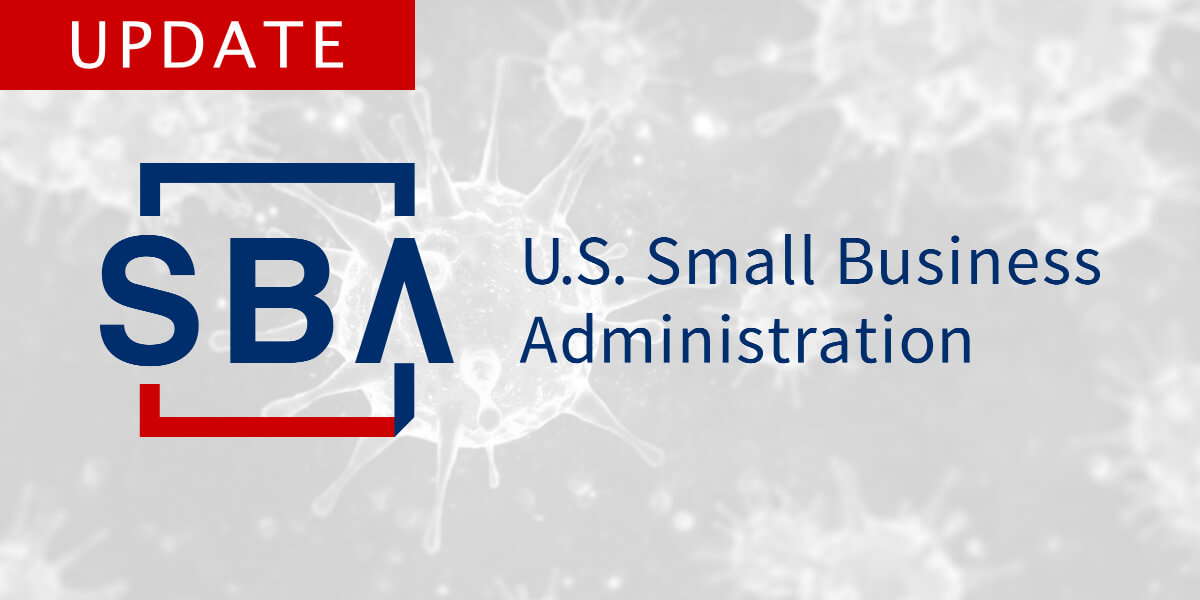🚨 Flood Relief & Emergency Assistance – Click Here for Help & Donation Info 🚨

News Release from the U.S. Small Business Administration
ATLANTA – The U.S. Small Business Administration is offering low-interest federal disaster loans for working capital to West Virginia small businesses suffering substantial economic injury as a result of the Coronavirus (COVID-19), SBA Administrator Jovita Carranza announced today. SBA acted under its own authority, as provided by the Coronavirus Preparedness and Response Supplemental Appropriations Act that was recently signed by the President, to declare a disaster following a request received from Gov. Jim Justice on March 18, 2020.
The disaster declaration makes SBA assistance available in the entire state of West Virginia; and the contiguous counties of Boyd, Pike, Lawrence and Martin in Kentucky; Allegany, Garrett and Washington in Maryland; Athens, Belmont, Columbiana, Gallia, Jefferson, Lawrence, Meigs, Monroe, and Washington in Ohio; Beaver, Fayette, Greene and Washington in Pennsylvania; and Alleghany, Augusta, Bath, Bland, Buchanan, Clarke, Craig, Frederick, Giles, Highland, Loudoun, Rockingham, Shenandoah and Tazewell in Virginia.
“SBA is strongly committed to providing the most effective and customer-focused response possible to assist West Virginia small businesses with federal disaster loans. We will be swift in our efforts to help these small businesses recover from the financial impacts of the Coronavirus (COVID-19),” said Administrator Carranza.
SBA Customer Service Representatives will be available to answer questions about SBA’s Economic Injury Disaster Loan program and explain the application process.
“Small businesses, private non-profit organizations of any size, small agricultural cooperatives and small aquaculture enterprises that have been financially impacted as a direct result of the Coronavirus (COVID-19) since Jan. 31, 2020, may qualify for Economic Injury Disaster Loans of up to $2 million to help meet financial obligations and operating expenses which could have been met had the disaster not occurred,” said Carranza.
“These loans may be used to pay fixed debts, payroll, accounts payable and other bills that can’t be paid because of the disaster’s impact. Disaster loans can provide vital economic assistance to small businesses to help overcome the temporary loss of revenue they are experiencing,” Carranza added.
Eligibility for Economic Injury Disaster Loans is based on the financial impact of the Coronavirus (COVID-19). The interest rate is 3.75 percent for small businesses. The interest rate for private non-
profit organizations is 2.75 percent. SBA offers loans with long-term repayments in order to keep payments affordable, up to a maximum of 30 years and are available to entities without the financial ability to offset the adverse impact without hardship.
Applicants may apply online, receive additional disaster assistance information and download applications at https://disasterloan.sba.gov/ela. Applicants may also call SBA’s Customer Service Center at (800) 659-2955 or email disastercustomerservice@sba.gov for more information on SBA disaster assistance. Individuals who are deaf or hard-of-hearing may call (800) 877-8339. Completed applications should be mailed to U.S. Small Business Administration, Processing and Disbursement Center, 14925 Kingsport Road, Fort Worth, TX 76155.
The deadline to apply for an Economic Injury Disaster Loan is Dec. 21, 2020.
For more information about Coronavirus, please visit: Coronavirus.gov.
For more information about available SBA resources and services, please visit: SBA.gov/coronavirus.
About the U.S. Small Business Administration
The U.S. Small Business Administration makes the American dream of business ownership a reality. As the only go-to resource and voice for small businesses backed by the strength of the federal government, the SBA empowers entrepreneurs and small business owners with the resources and support they need to start, grow or expand their businesses, or recover from a declared disaster. It delivers services through an extensive network of SBA field offices and partnerships with public and private organizations. To learn more, visit www.sba.gov.